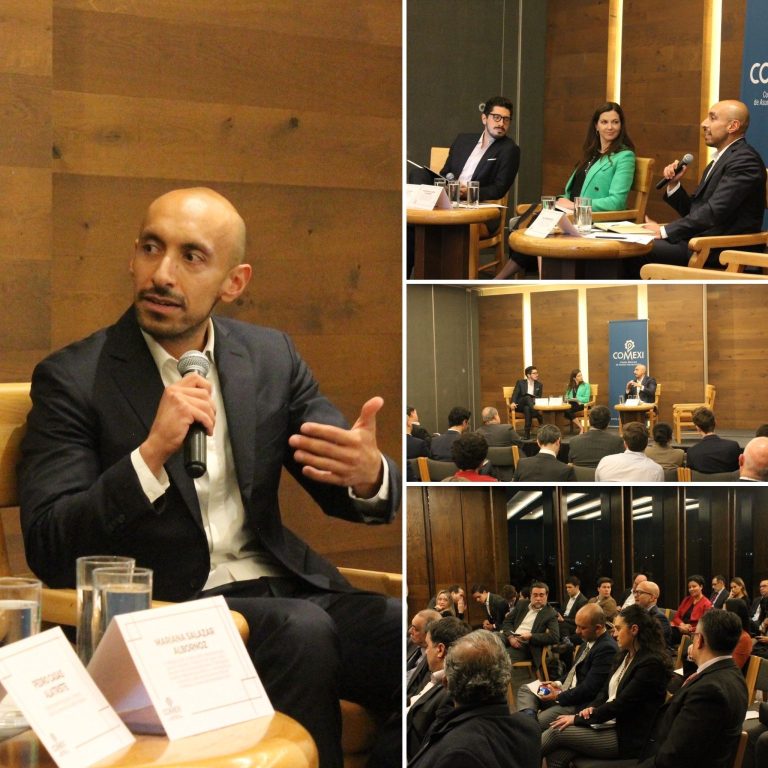Businesses Operating in Mexico: Opportunities, Challenges, and Geopolitics
On August 14, 2023, Ali Karami-Ruiz, leader of the Multilateral Organizations offering within our global Public Affairs practice spoke on a panel at a COMEXI (Consejo Mexicano de Asuntos Internacionales) event titled, “The Private Sector and International Organizations: Integrating Public Agendas.” Below are some of his reflections following the event.
Más que nunca, las empresas mexicanas tienen una agenda estratégica que desplegar en la escena internacional.
Ésa es la idea clave que se refleja tras una serie de reuniones que tuve recientemente en la Ciudad de México con líderes de asociaciones nacionales, gremios, compañías mexicanas, filiales de multinacionales, y emprendedores. Hemos intercambiado cómo la geopolítica afecta el desempeño del sector empresarial en México, y como éste, a su vez, también puede incidir en los mercados internacionales.
De estas discusiones salen cinco temas prioritarios:
- El nearshoring, que abre oportunidades para el comercio exterior sin olvidar la gestión de temas laborales, de digitalización, y del medio ambiente.
- La posición estratégica de México ante sus aliados comerciales, y su rol como líder regional (siendo miembro de la OCDE desde 1994) frente a las candidaturas de Brasil y Perú para acceder como futuros miembros.
- La centralidad de la seguridad energética para atraer y retener inversiones a largo plazo.
- Avanzar en salud e innovación para mejorar la productividad y el bienestar de la población.
- Evaluar los efectos que las iniciativas de sostenibilidad a nivel multilateral tendrán en la región de Latinoamérica y poder anticipar adecuadamente.
Y todo esto en un entorno nacional donde las elecciones del año que viene producen momentos idóneos para la generación y el debate de nuevas ideas de política pública.
During this panel discussion, I had the opportunity to share my perspectives on how companies operating in Mexico, a G20 country, can lead in shaping the business environment, and influence policy and regulations when national and international scenarios intersect in high-impact areas. I had the privilege and pleasure of presenting alongside colleagues Nathan Wolf, Director General, COMEXI (former Mexico ambassador); Mariana Salazar Albornoz, an accomplished international lawyer; and Pedro Casas Alatriste, Executive Vice President and General Director, American Chamber of Commerce of Mexico.
More than ever, Mexican businesses have a strategic agenda to deploy through the international scene.
This is the key idea that emerged following a series of meetings that I recently had in Mexico City with leaders of business organizations, trade associations, Mexican companies, multinational affiliates, and entrepreneurs. We have exchanged on how geopolitics affects the performance of the Mexican business community, and how Mexican entrepreneurs, in turn, can also shape international markets.
Five guiding themes for follow up engagement came from these discussions:
- Nearshoring, which opens opportunities for international trade without forgetting the management of labor, digitization, and environmental issues.
- The strategic position of Mexico vis-à-vis its trading partners, and its role as a regional leader (being a member of the OECD since 1994) in the context of the Brazilian and Peruvian accession processes to become future members.
- The centrality of energy security to attract and retain long-term investments.
- Advancing in health and innovation to improve the productivity and well-being of the population.
- Evaluating the effects that sustainability initiatives at multilateral levels will have in the Latin American region to adequately anticipate.
And all of this in a national context where next year’s elections produce ideal moments for generating and debating new policy ideas.

Related reading: Q&A with Ali on multilateral engagement – What it means, key trends and engagement advice for businesses.
Contact Ali for questions or further discussion.
The views expressed in this article are those of the author(s) and not necessarily the views of FTI Consulting, its management, its subsidiaries, its affiliates, or its other professionals.
©2023 FTI Consulting, Inc. All rights reserved. www.fticonsulting.com






